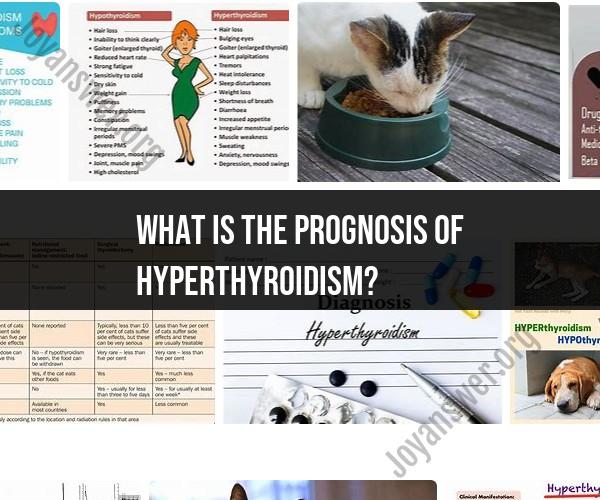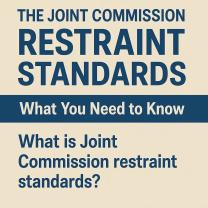What is the prognosis of hyperthyroidism?
The prognosis of hyperthyroidism, a condition characterized by an overactive thyroid gland, is generally favorable with appropriate diagnosis and treatment. The outcome of hyperthyroidism depends on several factors, including the cause of the condition, the severity of symptoms, the age of the individual, and the timeliness and effectiveness of treatment. Here are some key points regarding the prognosis of hyperthyroidism:
Treatment Success: Hyperthyroidism can often be effectively managed or cured with appropriate treatment. The primary treatment options include antithyroid medications, radioactive iodine therapy, and thyroid surgery (thyroidectomy). The choice of treatment depends on the underlying cause and individual factors.
Graves' Disease: Graves' disease is the most common cause of hyperthyroidism and is an autoimmune disorder. With proper management, including medication, radioactive iodine therapy, or surgery, most individuals with Graves' disease can achieve remission or stable control of their thyroid function.
Risk of Recurrence: While many people with hyperthyroidism achieve remission or stable control, there is a risk of recurrence, especially with Graves' disease. Long-term follow-up and monitoring are essential to detect any signs of relapse.
Cardiovascular Effects: Untreated or poorly controlled hyperthyroidism can have adverse effects on the cardiovascular system, including an increased risk of atrial fibrillation (irregular heartbeat) and other cardiac complications. Early diagnosis and effective treatment can reduce these risks.
Bone Health: Hyperthyroidism can lead to reduced bone density (osteoporosis) if left untreated. Treatment and thyroid hormone level normalization can help improve bone health.
Thyroid Eye Disease: Some individuals with Graves' disease may develop thyroid eye disease (ophthalmopathy), which can cause eye symptoms and changes in appearance. These symptoms can be managed with medical and surgical interventions.
Age and Comorbidities: Older individuals and those with underlying health conditions may face additional challenges in managing hyperthyroidism, but appropriate treatment can still lead to favorable outcomes.
Thyroid Storm: In severe cases of hyperthyroidism, a life-threatening condition called thyroid storm can occur. Prompt medical intervention is essential to manage thyroid storm, but it can be fatal if not treated urgently.
It's important for individuals with hyperthyroidism to work closely with healthcare professionals to develop a tailored treatment plan and receive regular follow-up care to monitor thyroid hormone levels and overall health. With proper medical management and lifestyle adjustments, most individuals with hyperthyroidism can expect a good prognosis and an improved quality of life.
Hyperthyroidism Prognosis: What to Expect and How to Manage It
Hyperthyroidism is a condition in which the thyroid gland produces too much thyroid hormone. Thyroid hormones play an important role in many bodily functions, including metabolism, heart rate, and body temperature. When thyroid hormone levels are too high, it can lead to a number of health problems.
The prognosis for hyperthyroidism is generally good with treatment. Most people with hyperthyroidism are able to achieve remission and live long, healthy lives. However, it is important to manage hyperthyroidism carefully to avoid complications.
Living with Hyperthyroidism: Outlook and Long-Term Prognosis
The outlook for hyperthyroidism is good for most people. With treatment, most people are able to achieve remission and live long, healthy lives. However, some people may experience long-term complications from hyperthyroidism, such as heart disease, osteoporosis, and eye problems.
The Road to Recovery: Prognosis and Treatment for Hyperthyroidism
There are a number of different treatments available for hyperthyroidism. The best treatment for you will depend on the cause of your hyperthyroidism and your overall health.
Once your hyperthyroidism is under control, you will need to continue to monitor your thyroid hormone levels regularly. This will help to ensure that your hyperthyroidism does not come back.
Common treatments for hyperthyroidism include:
- Antithyroid medications: These medications work by blocking the thyroid gland from producing too much thyroid hormone.
- Radioactive iodine treatment: This treatment involves taking a radioactive pill that destroys part of the thyroid gland.
- Thyroid surgery: This treatment involves removing part or all of the thyroid gland.
Here are some tips for managing hyperthyroidism:
- Take your medication as prescribed by your doctor.
- Get regular checkups with your doctor to monitor your thyroid hormone levels.
- Eat a healthy diet and exercise regularly.
- Avoid smoking and excessive alcohol consumption.
- Get enough sleep.
If you have any questions or concerns about your hyperthyroidism, be sure to talk to your doctor.













